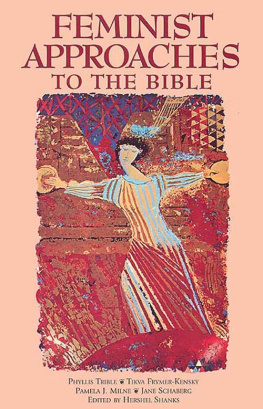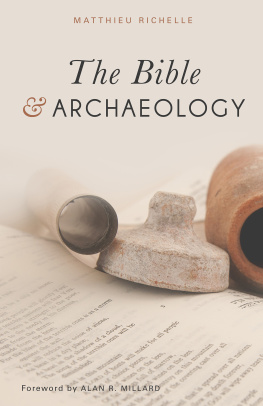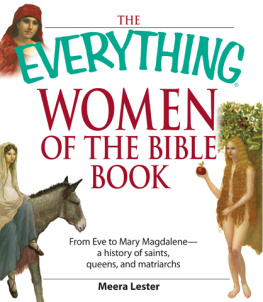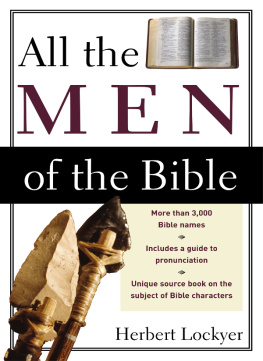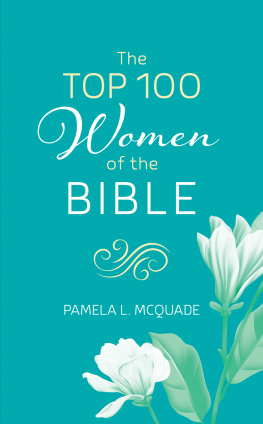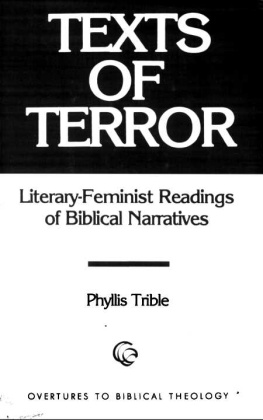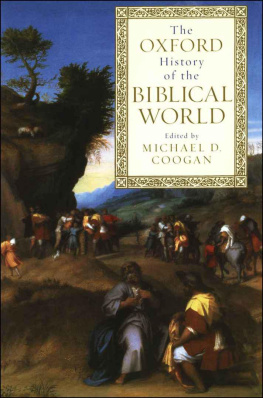
Feminist Approaches to the Bible
Symposium at the Smithsonian Institution
Sponsored by the Resident Associate Program
September 24, 1994
By Phyllis Trible, Tikva Frymer-Kensky, Pamela J. Milne and Jane Schaberg
Edited by Hershel Shanks
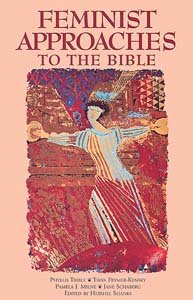
ON THE COVER: Miriam by Shraga Weil is a detail from the ceiling in the Israel Lounge at the Kennedy Center for the Performing Arts in Washington, D.C. Weils ceiling is a complex panorama of biblical scenes celebrating musical themes. Then Miriam the prophet took timbrel in her hand, and all the women went out after her.
Photo Pucker Gallery, Boston
Contents
Introduction
By Hershel Shanks
This is a wonderful time for those of us interested in biblical studies. The field is burgeoning. There are more books and journals and articles than one human being can read, let alone absorb. The field is exploding with exciting new ideas and perspectives.
At the same time, in society in general, we are witnessing a transformation of gender roles and gender perspectives unlike anything the world has ever seen since human beings first walked this earth. We are reassessing what it means to be a woman, and I guess also what it means to be a man. Our topic today lies at the intersection of these two exciting and enormously important developments, where gender studies and biblical studies meet.
The Bible is generally considered the most enriching collection of books ever written. For many, it is the word of God, Himself or Herself or Itself. You see the problem already. Before the advent of the modern age, the Bible was studied mostly from a theological or literary viewpoint. Modern critical studies have opened up a whole range of new approaches. We want to know when the Bible was written, how it developed, what claims it has to historical accuracy and what the biblical world was like.
The tools of archaeology, sociology, anthropology, linguistics, comparative religion, and all the subdivisions and subdisciplines of each, are being brought to bear in our effort to plumb the depths of this great book. How would an economist look at the financial dealings reflected in the Bible? How would a general assess the military tactics and strategies? How would a political scientist understand the development of government and administrative institutions? Its only natural that with all these new, and old, approaches we would also look at the Bible from the viewpoint of our new understandings of gender, the relations between men and women and their respective roles and attitudes in the biblical world.
In short, how does a modern feministand I include in that term men as well as womenlook at the text, relate to the text? I dont have to tell you that this is a sensitive subject. We are, after all, dealing with a sacred, holy text. Yet few would dispute that the biblical world was a patriarchal world. How does a feminist look for meaning in a biblical text that is essentially patriarchal?
Scholars have answered that question in a variety of ways, as we will hear from our speakers. They have also asked the question in a variety of ways, and that is, perhaps, more important. How one views the Bible often depends on what questions one asks, not simply on the answers one gives.
For example, we may ask how the Bible stories reflect the concerns of women, how womens interests are treated. We may consider womens roles. We may look at the lives of biblical women from a modern perspective, not just from the purview of the biblical world. We may look for distortions borne of a patriarchal perspective. And we may ask how we, as modern, 20th-century readers, relate to the text. Do these questions deepen our appreciation of the text? Do they lead to new perspectives on the text? Or do they lead us, in some instances, to reject the text?
I must tell you that I find this adventure enormously enriching. Sometimes people find new approaches to the Bible, like the feminist approach, threatening, even destructive. Will they in effect destroy faith? Will they cheapen or show disrespect for the biblical text? For me, it is exactly the opposite. It is not simply that they dont do this, but they are a positive good. They are an affirmative enlightenment, and they offer a deepening understanding.
Some of our childlike understandings of the Bible and the biblical text, I think, may keep us from a full appreciation of the deeper resonances of the text. When we explore the text from a feminist perspective, we understand another layer of the text. We relate to it more sensitively.
We will be exploring questions today, not in an abstract way as I have just been doing, but with close examinations of particular texts and the particular people who walk the pages of those textspeople like Eve, Miriam, Mary Magdalene, and the men with whom they relate. We will be asking challenging questions. How can difficult texts be reclaimed for women? In what special ways is the Bible a spiritual resource for women? Can it always be reclaimed, or are there texts that cannot be considered authoritative from a feminist viewpoint? How has the Bible been used to suppress women?
Our speakers today are astral figures in the field, and you will hear a variety of approaches, not just one. They will not always agree, but these scholars are some of the most insightful, creative biblical scholars working in the area of feminist studies. I know them all personally, and they are, in a sense, my teachers. I am not a scholar. I know how they have inspired and enriched me, and I am sure they will do the same for you.
Eve and Miriam: From the Margins to the Center
By Phyllis Trible
I can tell you about the standing of our first speaker with a little story. Elie Wiesel gives a series of lectures every year at the 92nd Street Y in New York on different biblical figures, and he mentioned to me that he was going to give one lecture this year on Miriam. Of course, that immediately brought up the subject of Phyllis Tribles work.
He told me he didnt know Phyllis, so I suggested luncheon together, and he jumped at the opportunity. I called Phyllis, and the three of us shared a long, leisurely lunch at Le Perigord. It was a wonderful occasion. I just sat there quietly in the middle and listened. Im only sorry I didnt record the conversation because it was magnificent.
Elie Wiesel and Hershel Shanks are not the only people who hold Phyllis Trible in high regard. The 4,500 members of the prestigious Society of Biblical Literature, all scholars, elected her their current president. She delivered her presidential address to thousands of Bible scholars assembled at the annual meeting of the society in Chicago on November 19, 1994. Phyllis is best known to the general public for her two path-breaking books, God and the Rhetoric of Sexuality and Texts of Terror: Literary Feminist Readings of Biblical Narratives.
It is a pleasure for me to present to you the Baldwin Professor of Sacred Literature at Union Theological Seminary in New York, Professor Phyllis Trible, who will speak on Eve and Miriam: From the Margins to the Center.H.S.
In the year of her 80th birthday (1895), the feminist Elizabeth Cady Stanton published The Womans Bible, an effort, as she described it, to have womens commentaries on womens position in the Old and New Testaments. Stanton worked against formidable odds, most tellingly, opposition from other suffragists who thought their larger cause would suffer if they attacked entrenched religious interests. Women scholars of the time who were versed in biblical criticism and biblical languages refused to help her for fear that an unpopular subject would compromise their reputations and attainments. But Stanton persevered. Her controversial work became a best-seller, though its effect upon scholarship and religious thinking was minimal. For 70 to 80 years thereafter, the feminist task of reinterpreting the Bible lay dormant, as did feminism itself.
Next page
